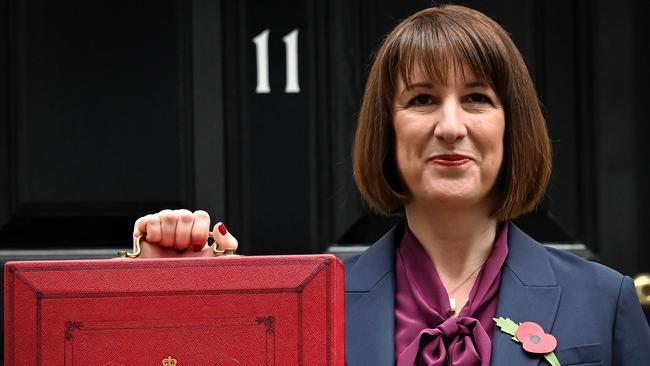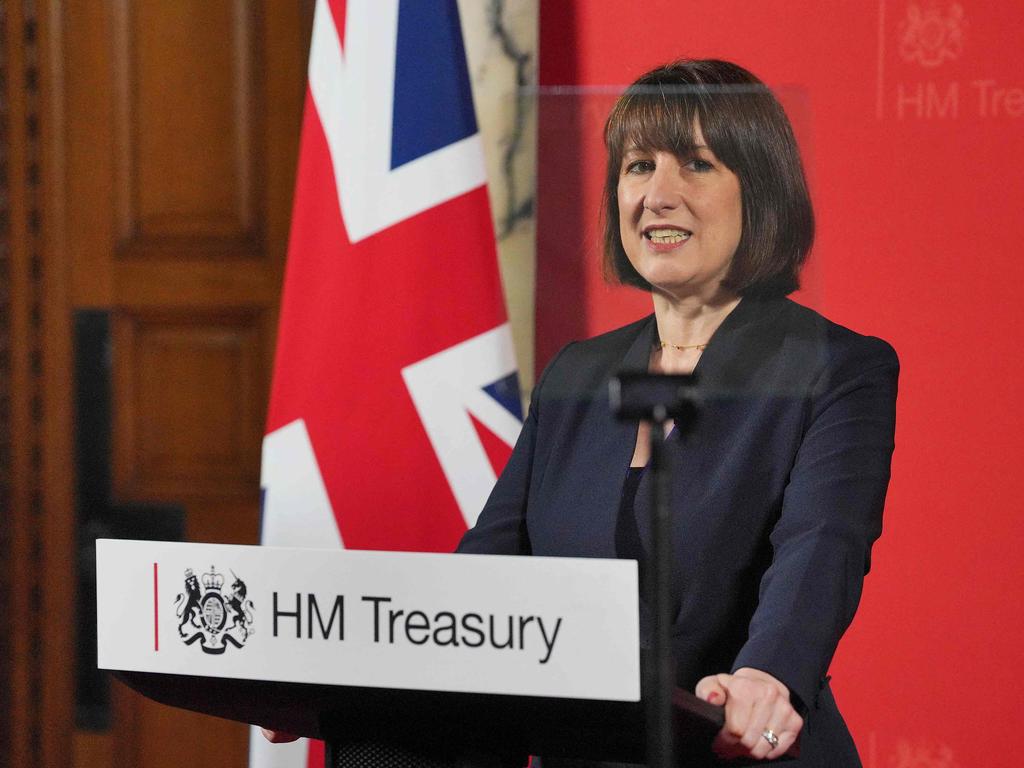UK government delivers a brutal budget hitting taxpayers with $80bn in tax rises
After promising no tax rises for working people, the Starmer government has just inflicted them with the highest tax burden in the UK’s history, hitting businesses and pensioners hard.

In the three months since the general election, British Prime Minister Keir Starmer has promised a brutal budget and on Wednesday his Chancellor delivered with the highest tax burden in the country’s history, hitting the public with over $A80bn in tax rises.
Gasps of shock were heard in Westminster as Chancellor Rachel Reeves announced: “Together, the black hole in our public finances this year, which recurs every year, the compensation payments which they did not fund and their failure to assess the scale of the challenges facing our public services means this Budget raises taxes by £40bn.”
Ms Reeves prepared for the budget at her Treasury office under a picture of one of the founders of the Communist Party of Great Britain, and a Labour Party member Ellen Wilkinson, and was inspired to rewrite the rules around fiscal responsibility so that the government can borrow more funds in a big spending high risk budget. She insists the plan will deliver some growth.
“I am restoring stability to our public finances and rebuilding our public services,” Ms Reeves vowed.
Businesses, small to large were hard hit with increases to national insurance contributions – similar to a payroll tax – which will rise to 15 per cent and providing as much as A$50bn for the government coffers by the end of the decade. Each employee will cost businesses an extra A$1600 a year, analysts say.
The threshold at which the contributions begin, an important point for many sole business traders, has been halved, meaning many small struggling businesses will be paying the tax for the first time.
Households haven’t escaped either, despite the Labour Party’s pre-election manifesto that it would not raise taxes for working people, with big increases in capital gains tax – the lower rate from 10pc to 18pc, and the higher rate from 20pc to 24pc – inheritance tax rules, entrepreneurs relief, and taxes on pensions and assets. Within two years people on the basic pension will fall into the lowest tax band and will have to pay tax. This comes after Mr Starmer withdrew the winter fuel allowance as one of the first decisions of his government, contributing to his widespread unpopularity.
Under this new budget, the UK tax burden will rise to 38 per cent of GDP by the end of the decade, the highest level on record. As a comparison, Australia’s tax burden, according to the OECD, was 29.5 per cent last year.
But the British government has also increased government spending, with an extra A$45bn for the National Health Service, a commitment to 2.5 per cent spending on defence, raising the minimum wage by six per cent, freezing petrol excise and taking a penny off the taxes levied on a pint of beer.
Richard Hughes, the chairman of the Office for Budget Responsibility said “against a largely unchanged economic and fiscal backdrop since our last forecast in March, this Budget delivers one of the largest increases in spending, tax, and borrowing of any single fiscal event in history.”
Sanjay Raja, chief UK economist at Deutsche Bank, said the budget showed that higher government borrowing will approach A$60bn.
He said: “With public spending pressures only likely to increase from here, the Chancellor will be walking a tight rope between even more tax hikes and, or cuts to spending to ensure she does not fall foul of her newly designed fiscal charter.”
Immediately after delivering the budget the cost of government borrowing surged. Ten year bonds rose nine basis points to 4.41pc. There were fears from some former chancellors that the budget may be inflationary and keep mortgage interest rates higher than they could be.
The two current Conservative leadership contenders were scathing of Ms Reeve’s overtly political budget.
Kemi Badenoch said: “Labour had 14 years in Opposition to think about what they should do with the economy and this is what we get: higher taxes, more borrowing, and lower growth.
Her Tory rival, Robert Jenrick called Rachel Reeves “the gloom-and-bust Chancellor” claiming the budget “completes the biggest heist in modern history”.
He said: “Labour promised not to raise taxes, but this £40bn tax hike amounts to a £1,400 bill for every household. The British public are right to be furious that they were brazenly lied to. “No budget in recent memory has hiked the taxes of the British people more. Labour’s recipe of taxing, spending and borrowing more has caused the OBR to downgrade growth to among its lowest levels for decades. “Forget boom and bust. Rachel Reeves will go down in history as the gloom-and-bust Chancellor. Reeves and Starmer conned the public at the general election and working people are now paying for it with higher taxes and lower growth.”






To join the conversation, please log in. Don't have an account? Register
Join the conversation, you are commenting as Logout